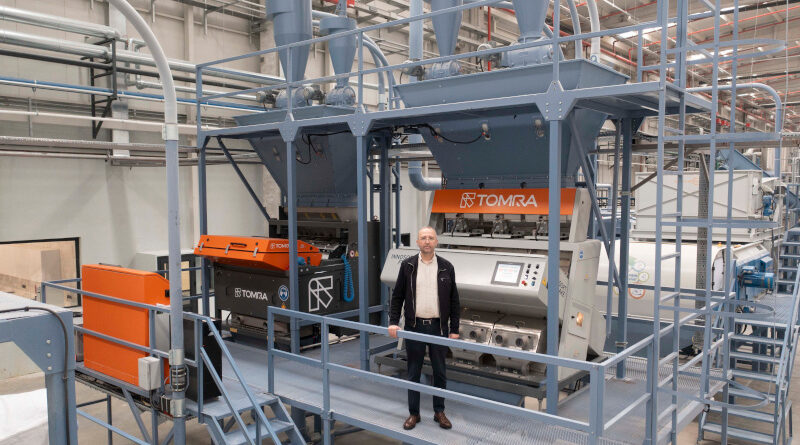Doğa PET advances Türkiye’s PET recycling with high-purity output
Doğa PET, a new venture by Türkiye-based Doğa Holding, has entered the recycling sector with a facility dedicated to producing high-purity PET flakes and rPET granules from post-consumer materials. The company uses Tomra Recycling’s sensor-based sorting systems to meet the quality standards required for food-grade and textile applications.
As part of its broader diversification strategy, Doğa Holding has expanded into recycling with a facility in northwestern Türkiye. The plant processes over 4,200 tons of PET bottles each month, yielding 1,000 tons of PET flakes and 2,000 tons of rPET granules. The operation is supported by Tomra’s full suite of sorting equipment, including four Autosort units for bottle sorting and a combination of Innosort Flake and Autosort Flake systems for advanced flake purification.
Depending on Doğa PET’s customer requirements, the premium PET flakes – produced in various quality grades – are used for PET sheet production, while the rPET granules are mainly aimed at bottle-to-bottle recycling and high-quality textile applications. The company plans to export its recycled products, primarily to European countries.
While producing clear flakes, Doğa PET aims to minimize the loss of light blue PET material and, when necessary, separates the light blue material from the clear one. The blue bottles, which are ejected when processing clear PET, can be a valuable resource for other applications.
Doğa PET is the first facility in Türkiye to successfully separate light blue material from clear material, regardless of the infeed product. During the sorting process, light blue products are separated from all infeed materials and recovered for reuse as needed.
Serkan Orhan, Sales Manager for Tomra Recycling Sorting in Türkiye and the Middle East, explains the full process: “The plant’s production line features four Autosort units which pre-sort the PET bottles. The first three sort by material and color before sending them to the subsequent crushing and washing line. The fourth Autosort unit re-sorts the rejected products from the first three units, sending recoverable materials back to the first Autosort to improve efficiency and material recovery.
“After pre-sorting, the material is crushed, washed and dried before being sorted by target colours using the Innosort Flake, Tomra’s highly flexible colour and polymer flake sorting machine. Finally, the flakes are sent to the Autosort Flake unit, a specialist solution for high-end flake sorting applications such as food-grade bottle-to-bottle recycling. At this sorting stage, the targeted high purity is achieved thanks to the reliable separation of colour, polymer and metal contaminants, virtually eliminating all traces of PVC, PC, PS and other unwanted polymers.”
Doğa PET is required to prove that less than 5% of the input material for its washing process consists of non-food grade PET to produce food-grade pellets. To meet this requirement and enhance material recovery across its sorting lines, the company has invested in a state-of-the-art waste analyser powered by PolyPerception, a solution that uses cameras for real-time material analysis and classification at key points in the sorting plant. At Doğa PET’s plant, the analyser is positioned before the last of four Autosort units. It continuously monitors and analyses the quantity of non-food grade PET bottles destined for the washing line.
By providing data per batch or shift, the analyser enables Doğa PET to certify the food-grade quality of material from each specific production period, offering crucial reassurance to both its customers and relevant certification bodies.
While Doğa PET invests in high-quality food-grade rPET granules for bottle-to-bottle recycling, the company also applies the same approach to supplying raw materials for the textile industry.
Photo: Dr. Selçuk Gökhan Gerlikhan, General Manager of Doğa PET

